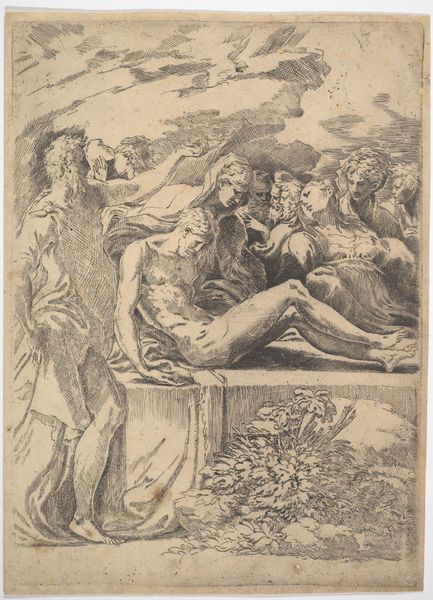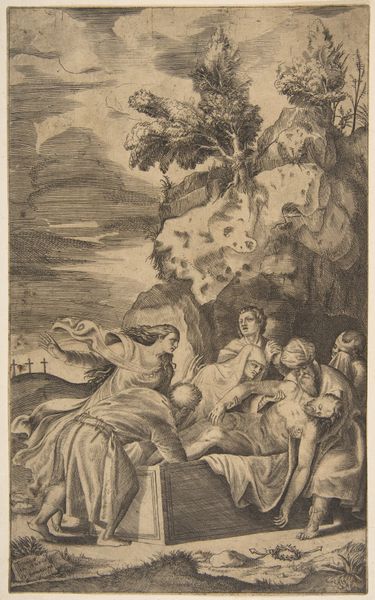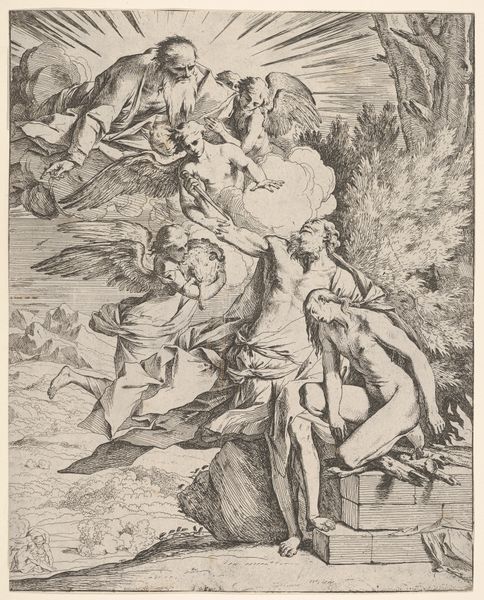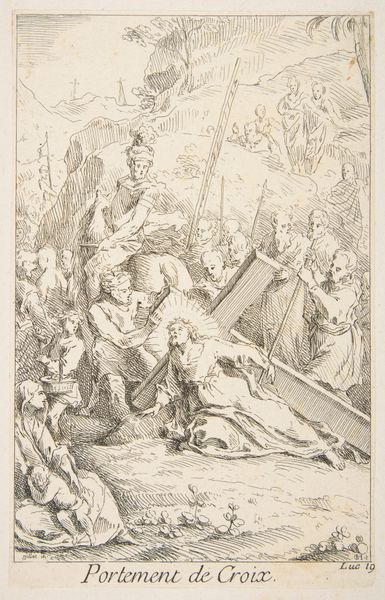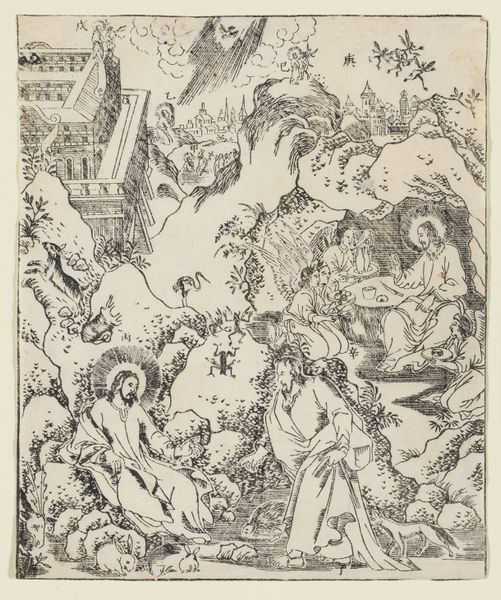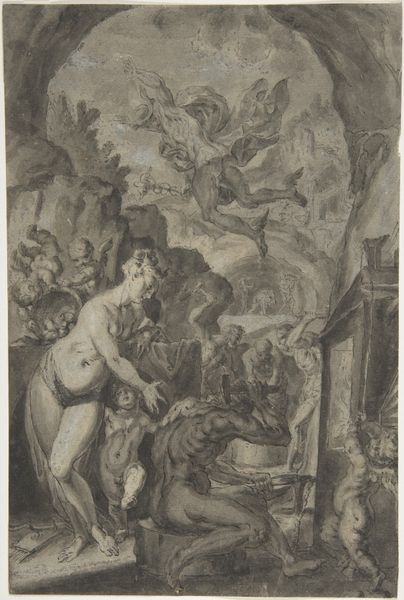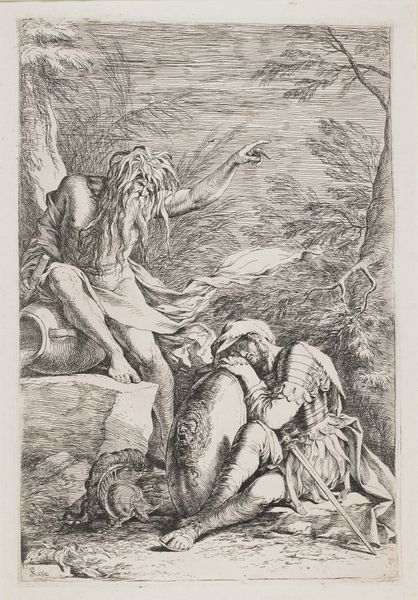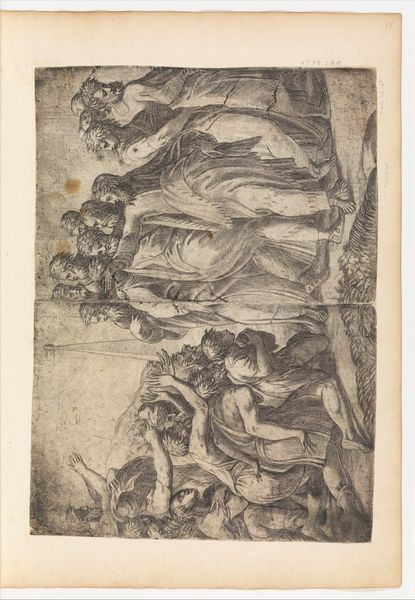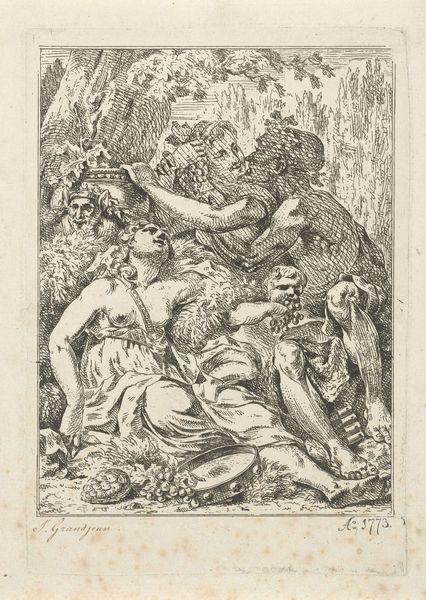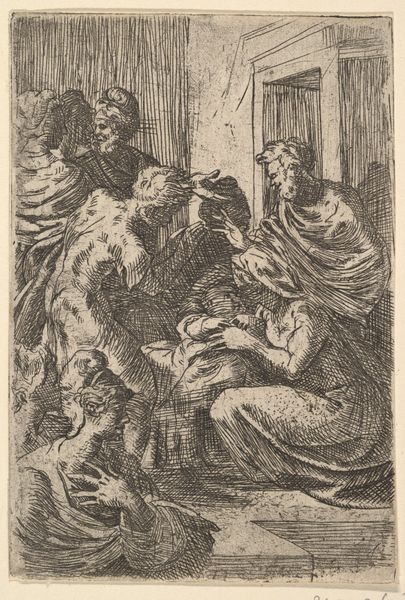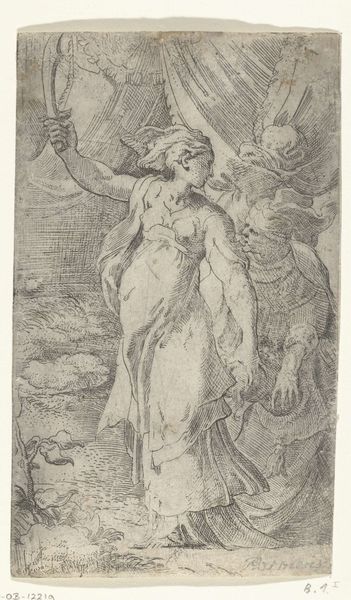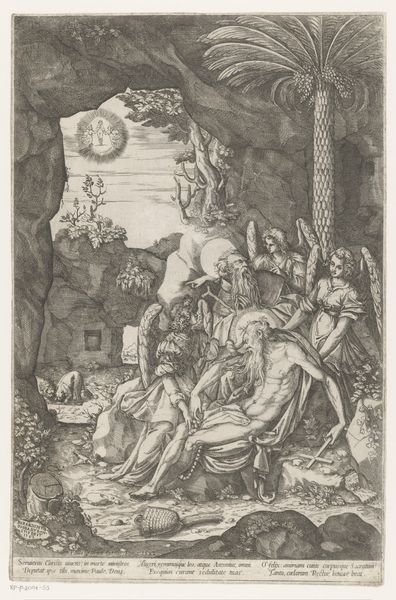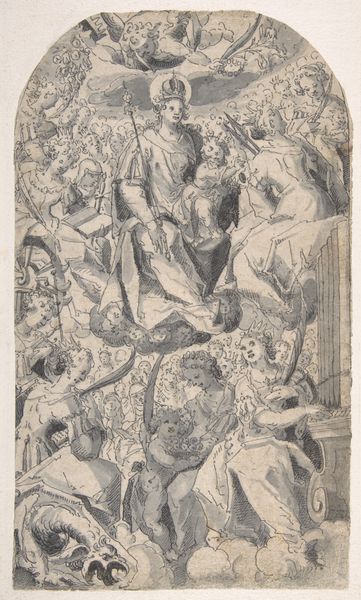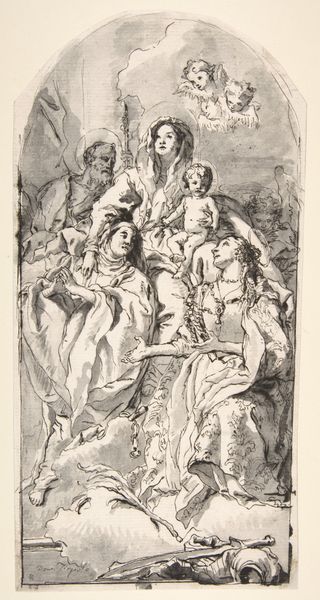
drawing, print, etching
#
drawing
#
narrative-art
#
baroque
# print
#
etching
#
etching
#
figuration
#
history-painting
#
christ
Dimensions: sheet: 7 11/16 x 4 13/16 in. (19.6 x 12.2 cm), trimmed to image
Copyright: Public Domain
Editor: Here we have Claude Gillot’s etching, "Entombment of Christ," likely created between 1685 and 1722. The linear quality gives it a kind of immediacy, almost like a newsprint image, but the scene itself is obviously incredibly somber. How do you interpret this work? Curator: Ah, Gillot. I find this piece so striking in its stark simplicity, especially for the Baroque period, which usually leans into grandiosity. To me, the raw lines amplify the grief – each scratch of the etching needle seems like another tear shed. The figures are almost minimalist, yet so full of sorrow. Do you feel that, that quiet yet profound sadness? Editor: Definitely. It’s interesting how the barren landscape almost mirrors the emotional state of the figures. Was Gillot known for religious scenes like this? Curator: Not primarily, no. Gillot often gravitated towards theatrical and genre scenes. What's compelling here is how he infuses such personal anguish into this religious subject. It’s less about divine spectacle and more about the very human experience of loss, wouldn’t you say? You almost feel like you’re intruding on a private moment of intense sorrow. Editor: I see what you mean. Knowing he focused on theatre really does give it an added layer. Thanks for pointing that out! It’s made me rethink my initial read. Curator: Isn’t that the joy of art, though? It whispers different secrets each time we listen. Each viewing, each insight, is another thread woven into the tapestry of understanding.
Comments
No comments
Be the first to comment and join the conversation on the ultimate creative platform.
